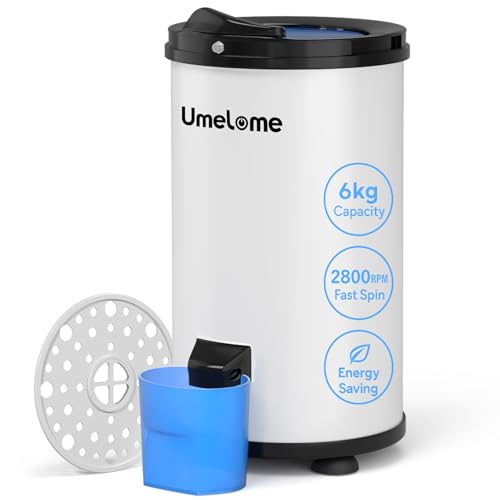




When it comes to doing dishes, sometimes we overlook the importance of rinse aid. In certain areas, especially where the water is hard, they can be a real lifesaver. Rinse aids are formulated with sequestrants, detergents, and surfactants to help your dishwasher tablets work more effectively. Therefore, using rinse aid can be a good thing.
Clear dishwasher tablets, like the ones made by Finish, have a powerball that activates during the wash cycle. This powerball contains surfactants that help break down food particles and remove stains. However, it doesn’t provide complete protection against limescale and other residues.
So, what’s the right answer? Should you skip filling your dishwasher aid compartment with rinse aid, or do your dishes need that extra boost? The answer depends on what your dishwasher needs and what’s important to you. Some people find that their glasses come out cloudy without rinse aid; therefore, using it is a better option for them. Others may find that their dishwasher does a good job without it and choose to save the cost.
While dishwasher tablets already contain surfactants and enzymes to help with the washing process, they may not be as effective at rinsing and drying your dishes as rinse aid. Rinse aid can improve the drying process and reduce water spots, especially on glassware. It can also help soften water and prevent limescale buildup in your dishwasher, which can extend its life.
So, if you’re wondering whether you really need rinse aid with dishwasher tablets, the answer is: it depends. If you frequently have issues with spots, cloudiness, or limescale, using rinse aid may be worth it. If not, you can try using vinegar or other cost-effective alternatives to achieve similar results.
Understanding why rinse aid can be beneficial, and whether or not you have a need for it, can help you make a more informed decision when it comes to your dishwashing routine.
Still have questions about rinse aid? Check out our FAQs section for more information.
Q: Do dishwashers need rinse aid?
A: Although some dishwashers may perform well without rinse aid, using it can improve the overall results, especially when it comes to reducing spots, limescale, and improving drying.
Q: Can I use something else instead of rinse aid, like vinegar?
A: Vinegar can be a cheaper alternative to rinse aid, and it can be effective at reducing spots and limescale. However, it may not provide the same level of drying and overall performance as a dedicated rinse aid.
Do You Really Need Rinse Aid with Dishwasher Tablets?
When it comes to using dishwasher tablets, one question that often arises is whether you really need to use rinse aid as well. Rinse aid is an agent that works to prevent water spots and enhance the drying process in the dishwasher. But do you actually need it?
The answer is not a simple yes or no. It depends on a few factors. Let’s take a closer look at them:
1. The Type of Dishwasher Tablets You’re Using
There are different types of dishwasher tablets available in the market. Some are all-in-one products that contain rinse aid, while others do not. If you’re using all-in-one tablets, there’s no need to use rinse aid separately as it is already included.
However, if you’re using tablets without rinse aid, then it is recommended to use a separate rinse aid agent for better results.
2. The Quality and Effectiveness of Your Dishwasher
Some dishwashers are more effective than others in providing a thorough and spotless wash. If your dishwasher is not very efficient or older, then using rinse aid can significantly improve the performance and overall cleanliness of your dishes and glassware.
3. The Water Hardness in Your Area
The hardness of water in your area can also play a role in determining whether you need rinse aid or not. Hard water contains minerals that can leave behind spots and residue on your dishes. In such cases, using rinse aid can help to minimize these issues and leave your dishes cleaner and spot-free.
4. The Cost and Value of Using Rinse Aid
Rinse aid is an additional cost when it comes to dishwasher maintenance. If you’re on a tight budget or don’t want to spend extra money, then skipping rinse aid may be a suitable option.
However, it’s important to consider the value that rinse aid can bring. It can save you time and effort by reducing the need for hand-drying and re-washing dishes, and can also extend the lifespan of your dishwasher by preventing mineral buildup.
Conclusion
In general, using rinse aid with your dishwasher tablets can have several benefits. It can enhance the cleaning process, improve the drying results, and prevent water spots and residue. However, the need for rinse aid varies depending on your dishwasher, the type of tablets you’re using, and the water hardness in your area.
Ultimately, it’s up to you to decide whether to use rinse aid with your dishwasher tablets. Experiment with different methods and products to find what works best for you. And remember, there’s always the option of using natural alternatives like vinegar or lemon juice if you prefer a more eco-friendly approach.
Rinse Aid and Dishwashers
When it comes to washing dishes in dishwashers, many people may wonder if they really need to use rinse aid in addition to dishwasher tablets. In this article, we will explore the purpose of rinse aid and why it may be beneficial for your dishwasher.
Understanding Rinse Aid
Rinse aid is a liquid additive that can be used in conjunction with dishwasher tablets to improve the overall performance of your dishwasher. It is specifically designed to assist with the final rinse cycle of your dishwasher, helping to remove leftover detergent residue, watermarks, and spots from your dishes.
Rinse aid works by reducing the surface tension of water, allowing it to flow more easily off your dishes and glassware. This helps to prevent water droplets from clinging to your dishes, ensuring they come out spotless and shiny after each wash.
Why Should You Use Rinse Aid?
While dishwasher tablets are effective at cleaning dishes, they don’t always provide the same level of protection against watermarks and spots. Adding rinse aid to your dishwasher can enhance the performance of your dishwasher tablets, giving you better results.
Rinse aid can also help to prevent mineral deposits and limescale buildup on your dishes and dishwasher’s heating elements. This can extend the life of your dishwasher and improve its overall efficiency.
Rinse Aid and All-in-One Tablets
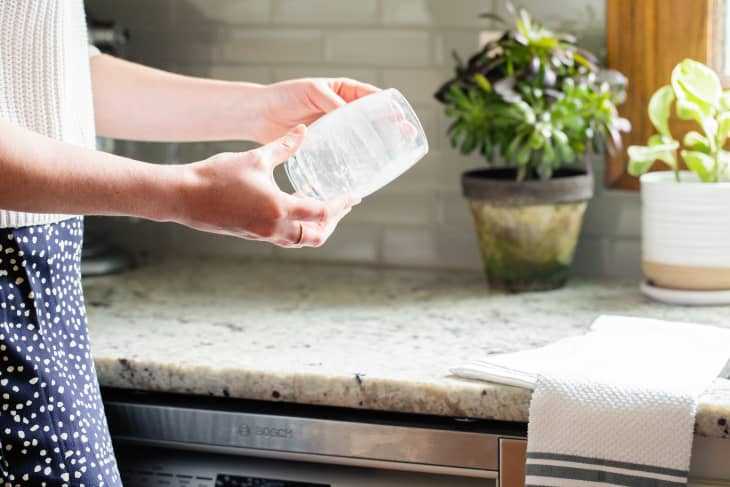
If you’re using all-in-one dishwasher tablets that already contain rinse aid, you may wonder if you still need to add additional rinse aid to your dishwasher. In most cases, the rinse aid included in these tablets is sufficient. However, if you frequently experience watermarks or spots on your dishes, you may want to consider adding extra rinse aid for better results.
It’s important to note that rinse aid and dishwasher tablets serve different purposes. While dishwasher tablets are formulated to clean your dishes, rinse aid focuses on improving the rinse cycle to ensure a sparkling finish. Using both together can optimize the performance of your dishwasher.
How to Use Rinse Aid
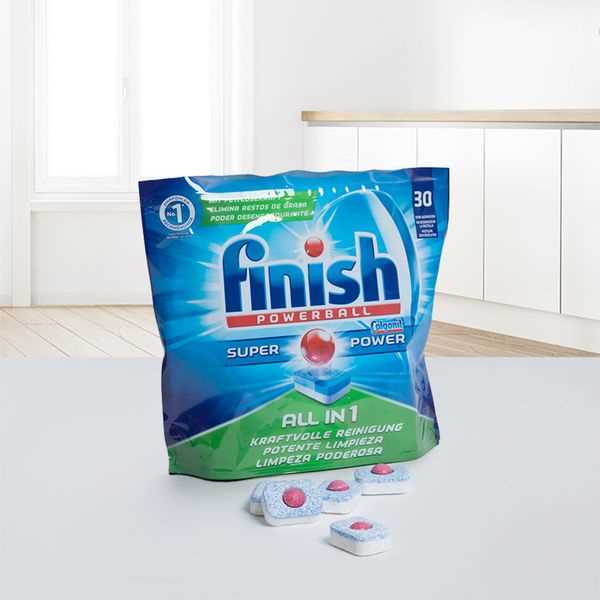
Using rinse aid is easy. Most dishwashers have a built-in rinse aid dispenser where you can pour the liquid. Check your dishwasher’s user manual for specific instructions on how to fill the dispenser.
If your dishwasher does not have a built-in dispenser, there are rinse aid dispensers available that can be attached to the inside of your dishwasher door. These dispensers can be filled with rinse aid and will automatically release the liquid during the rinse cycle.
Is Rinse Aid Worth It?
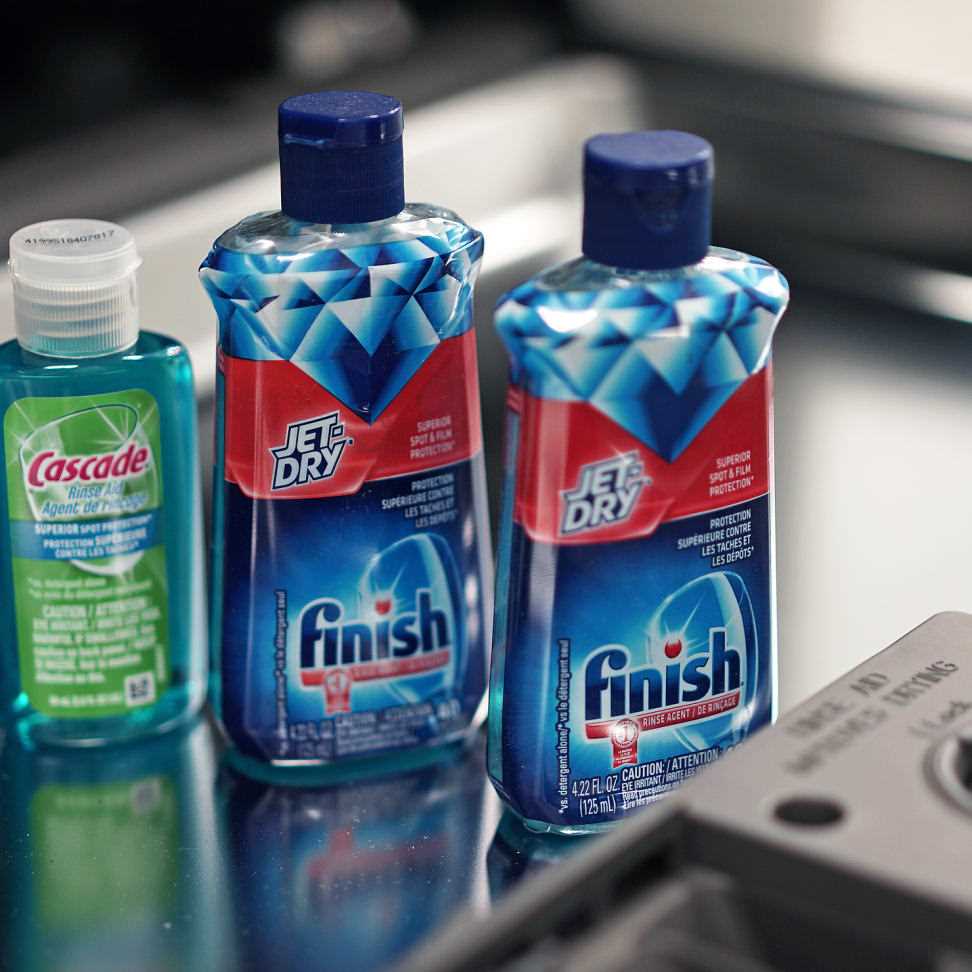
Many dishwasher manufacturers recommend using rinse aid for optimal results. While rinse aid is an extra cost, it can be worth it if you want spotless and shiny dishes after each wash. Additionally, using rinse aid can help to extend the life of your dishwasher by preventing mineral buildup.
Overall, whether you choose to use rinse aid with your dishwasher tablets is a personal preference. However, if you frequently encounter watermarks or spots on your dishes, using rinse aid can be a helpful addition to your dishwasher routine.
For more information on dishwasher maintenance and care, check out our other articles and FAQs on our website.
Benefits of Using Rinse Aid
What’s the purpose of rinse aid and why should you use it?
Rinse aid is an important component in the dishwashing process that helps to improve the overall effectiveness and appearance of your glassware, dishes, and utensils. While dishwasher tablets are great at cleaning, they sometimes fall short when it comes to leaving a streak-free shine on your dishes. Rinse aid is designed to fill this gap and provide a better result.
How does rinse aid work?
Rinse aid typically contains surfactants, polymers, sequestrants, and enzymes. These ingredients work together to help prevent water spots, limescale buildup, and improve the drying process. The surfactants lower the surface tension of the water, allowing it to spread evenly and preventing water from clinging to the surface of your dishes. The polymers create a protective coating on the glassware, helping to repel water and leave a shiny finish. The sequestrants help to soften the water, reducing the effects of limescale, while the enzymes break down food particles for easier removal.
What are the benefits of using rinse aid?
- Rinse aid improves the overall appearance of your dishes and glassware by ensuring a streak-free shine.
- It helps to prevent water spots and residue on your dishes, especially on glassware.
- Rinse aid aids in the drying process, allowing your dishes to come out of the dishwasher dry and ready to use.
- It helps to reduce limescale buildup, which can affect the performance of your dishwasher over time.
- Rinse aid can also improve the efficiency of detergent tablets, allowing them to work better and provide more consistent results.
- Using rinse aid can save you time and effort by eliminating the need for manual drying or re-washing of dishes.
How to use rinse aid?
The use of rinse aid is simple. Most dishwashers have a dedicated dispenser for rinse aid located near the detergent dispenser. Simply fill the dispenser with rinse aid as per the manufacturer’s instructions. If your dishwasher does not have a dedicated dispenser, you can also use rinse aid by placing it in a small container on the top rack of your dishwasher. Make sure to follow the instructions on the rinse aid packaging for the correct dosage.
Can I skip using rinse aid?
While you can skip using rinse aid, there are clear benefits to using it. Without rinse aid, you may notice that your dishes are not as shiny or spot-free, and drying can be less efficient. Additionally, limescale buildup may occur more quickly, affecting the performance of your dishwasher. If you’re looking for the best results, using rinse aid is recommended.
Do rinse aid and vinegar serve the same purpose?
No, rinse aid and vinegar do not serve the same purpose. Rinse aid is specifically formulated to work with dishwasher detergents and improve the overall performance of your dishwasher. Vinegar, on the other hand, can be used as a natural alternative to remove stains and odors from your dishwasher. While vinegar may have some mild cleaning properties, it is not designed to provide the same benefits as rinse aid.
What’s the difference between rinse aid and dishwasher tablets with built-in rinse aid?
Some dishwasher tablets come with built-in rinse aid, often referred to as all-in-one tablets or powerball tablets. These tablets are designed to perform multiple functions, including cleaning, removing tough stains, and providing a shiny finish. However, the effectiveness of the built-in rinse aid may vary depending on the brand and composition of the tablet. Using a separate rinse aid along with a regular dishwasher tablet can often provide better results.
Can rinse aid be used with all dishwasher tablets?
Rinse aid can be used with most dishwasher tablets, although it is always recommended to check the product packaging or consult the manufacturer’s instructions to be sure. Some dishwasher tablets come with clear instructions on the use of rinse aid, while others may already contain rinse aid as part of their formula.
FAQs
- Q: Do I need to use rinse aid if I’m already using a high-quality dishwasher tablet?
- Q: Can I use rinse aid with Aldi dishwasher tablets?
- Q: What if my dishwasher tablet already has rinse aid included?
A: While some high-quality dishwasher tablets may perform well on their own, using rinse aid can further enhance their performance and provide better results.
A: Yes, rinse aid can be used with Aldi dishwasher tablets. It is compatible with most dishwasher detergent brands and types.
A: If your dishwasher tablet already contains rinse aid, you can skip using a separate rinse aid. The built-in rinse aid should be sufficient for most dishwashing needs.
Overall, using rinse aid with your dishwasher tablets can greatly improve the appearance and effectiveness of your dishwashing routine. Whether you choose to use a separate rinse aid or opt for dishwasher tablets with built-in rinse aid, the right combination can make a noticeable difference in the cleanliness and shine of your dishes.
How Rinse Aid Works
Rinse aid is an effective agent that is worth using with dishwasher tablets. But what exactly is it and why should you not skip using it?
Rinse aid is typically an alkaline, non-ionic surfactant that helps to improve the rinsing process in your dishwasher. It works by reducing the surface tension of water, allowing it to easily flow off dishes, glassware, and utensils, leaving them shiny and streak-free.
So, what’s the difference between rinse aid and dishwasher tablets? While dishwasher tablets are primarily designed to clean your dishes, rinse aid has the specific role of enhancing the rinsing process, ensuring that no residue or water spots are left behind.
You may wonder if adding rinse aid is necessary when using dishwasher tablets, especially if they already contain bleach and other cleaning agents. The answer is yes, using rinse aid can further improve the overall cleanliness and appearance of your dishes.
Here’s why:
- Boosts the cleaning power: Rinse aid contains ingredients that help to break down and remove food particles and stains during the rinse cycle.
- Prevents water spots and streaks: Rinse aid significantly reduces the chance of water spots and streaks forming on your dishes, glassware, and utensils, leaving them looking clean and clear.
- Enhances drying: Rinse aid helps water to sheet off dishes more efficiently, which means they will dry faster and with fewer water droplets remaining.
- Improves dishwasher performance: The use of rinse aid can also help improve the overall performance of your dishwasher by preventing minerals and other deposits from building up in the spray arms and other internal parts.
While some dishwasher tablets may claim to have rinse aid properties, using a separate rinse aid ensures that you’re getting the best possible results. An example of a popular rinse aid brand is Finish.
So, where do you add rinse aid in your dishwasher? Most dishwashers have a dedicated rinse aid dispenser, usually located next to the detergent dispenser. Fill the dispenser according to the manufacturer’s instructions, and the dishwasher will release it at the appropriate time during the cycle.
In summary, rinse aid plays an important role in the overall cleaning and drying process of your dishwasher. While dishwasher tablets do a great job of cleaning, using rinse aid can provide additional benefits and help you achieve spotless and sparkling dishes.
Next time you’re doing your dishes, remember the importance of using rinse aid for optimal results!
Importance of Salt in Dishwashers
When it comes to dishwasher maintenance, there’s more to it than just adding detergent and pressing start. One important component that is often overlooked is the use of salt. While dishwasher tablets typically contain all the necessary ingredients for a wash cycle, adding salt to your dishwasher can greatly improve its performance and the cleanliness of your dishes.
What’s the purpose of salt in dishwashing?
Salt is an essential component in dishwashing as it helps to soften the water by effectively removing the mineral deposits that can be found in hard water. Hard water contains high levels of minerals, such as calcium and magnesium, which can leave behind white, hazy spots on your dishes and glassware.
Adding salt to your dishwasher helps to prevent these minerals from depositing on your dishes, ensuring a thorough and spot-free clean. It also helps to improve the effectiveness of the detergent, allowing it to work better in removing food particles and stains.
How does adding salt make a difference?
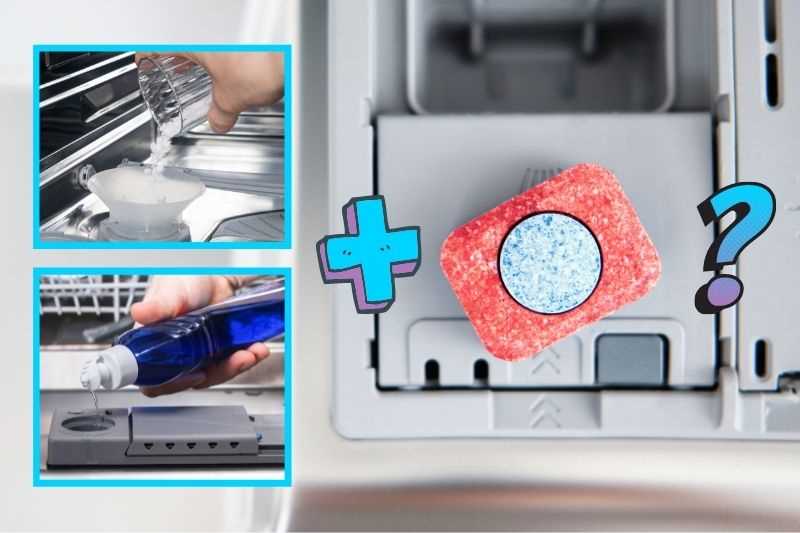
When you add salt to your dishwasher, it goes into a designated reservoir called the salt dispenser. The salt then mixes with the water, creating a saline solution that helps to soften the water. This softening process allows the detergent to be more effective in breaking down food particles and stains, resulting in cleaner and shinier dishes.
In addition to improving the overall washing performance, using salt in your dishwasher can also extend the life of your machine. By preventing mineral buildup, salt helps to keep the internal components of your dishwasher free from scale and corrosion.
How often should you add salt?
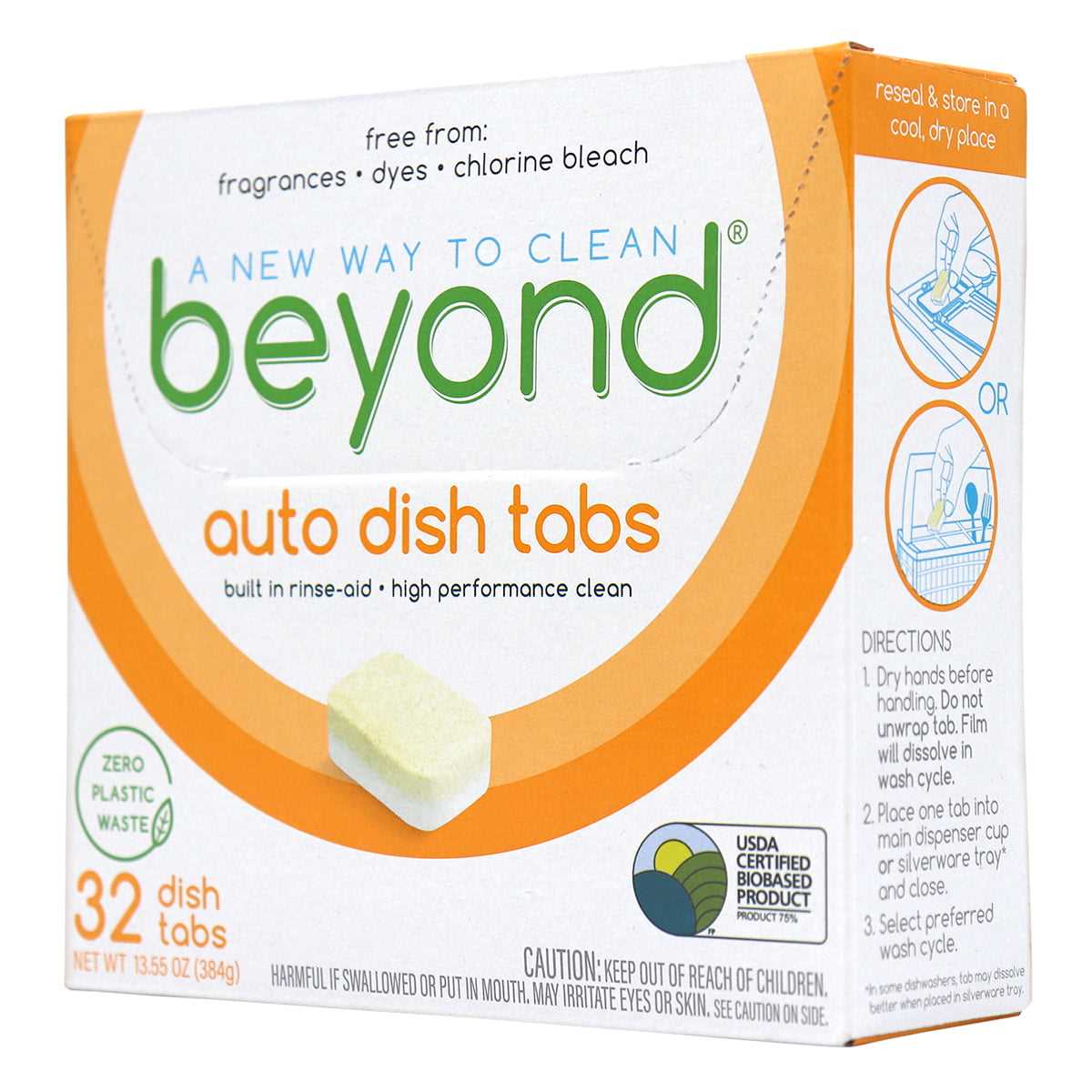
The frequency of adding salt depends on a few factors, such as the hardness of your water and how often you use your dishwasher. Generally, it is recommended to check and refill the salt dispenser every 1 to 2 months or as needed. Some dishwashers even have a built-in indicator that alerts you when it’s time to add more salt.
FAQs about using salt in dishwashers
- Do all dishwashers need salt? Not all dishwashers require salt. Some newer models are equipped with a water softening system that eliminates the need for additional salt.
- Can I use table salt instead? No, table salt is not suitable for use in dishwashers. It contains additives that can damage the machine over time. It is recommended to use dishwasher salt specifically designed for dishwashing machines.
- What if I forget to add salt? If you forget to add salt, your dishwasher may still work, but the results may not be as effective. You may notice increased spotting or residue on your dishes and glassware.
- Can I use vinegar as a substitute for salt? While vinegar is sometimes used as a natural cleaning agent, it is not a suitable substitute for salt in dishwashing. Vinegar can be too acidic and may cause damage to your machine over time.
Conclusion
Adding salt to your dishwasher can make a significant difference in the cleanliness of your dishes and the performance of your machine. It helps to soften the water and improve the effectiveness of the detergent, resulting in spot-free and shiny dishes. So, if you’re using dishwasher tablets and want to achieve the best possible results, don’t forget to add salt to your dishwasher.
FAQ
What is rinse aid and what does it do?
Rinse aid is a liquid product that helps to improve the drying process of your dishes and prevent water spots. It helps to eliminate the remaining water on your dishes after the cycle is completed, ensuring that they come out clean and dry.
Do I really need to use rinse aid with dishwasher tablets?
Using rinse aid with dishwasher tablets is not essential, but it can greatly improve the results of your dishwasher. Rinse aid helps to prevent water spots, streaks, and enhance the drying process. If you want spotless, streak-free dishes, using a rinse aid is recommended.
Can I use dishwasher tablets without rinse aid?
Yes, you can use dishwasher tablets without rinse aid. The tablets are formulated to clean your dishes effectively on their own. However, using rinse aid can enhance the results by preventing water spots and improving drying performance.
What happens if I use dishwasher tablets without rinse aid?
If you use dishwasher tablets without rinse aid, your dishes may not dry completely and could end up with water spots or streaks. Rinse aid helps to eliminate the remaining water on your dishes, ensuring a thorough drying process and spotless results.
How does rinse aid work with dishwasher tablets?
Rinse aid works by reducing the surface tension of water, allowing it to slide off your dishes more easily. When used with dishwasher tablets, rinse aid helps to eliminate the remaining water on your dishes, preventing water spots and enhancing the drying process.
Can I use rinse aid with any dishwasher tablet?
Yes, rinse aid can be used with any dishwasher tablet. It is compatible with all brands and types of dishwasher tablets. Simply follow the instructions on the rinse aid bottle for proper usage.
Is rinse aid expensive?
The cost of rinse aid can vary depending on the brand and size of the bottle. However, it is generally affordable and lasts for a long time. A little goes a long way with rinse aid, so you won’t need to purchase it frequently.








